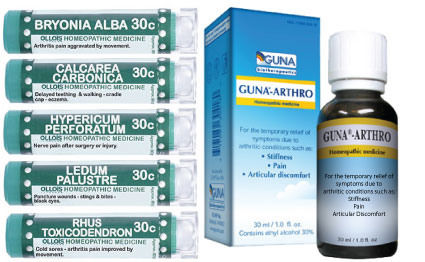There are two main types of arthritis – osteoarthritis and rheumatoid arthritis. They are quite different from each other. Osteoarthritis is a condition that occurs when cartilage that covers the ends of bones in the joints breaks down and wears away. Rheumatoid arthritis is a disease caused by problems with the body’s immune system.
(Ruth Bjorklund; Arthritis 2009; 12-14)
Symptoms associated with arthritis (SEE ARTHRITIS KIT AT BOTTOM OF PAGE)
Mainly stiffness, redness, swelling, limitation of movements, may also associated with fever, weight loss, carditis in specific medical conditions of arthritis.
Causes of arthritis
- Injury -can damage to bone, ligament and cartilage that ultimately leads to severe pain.
- Infection – Any kind of infection to the joint may result arthritis.
- Obesity and advanced age – Both are very common cause of arthritis.
- Overuse – Overuse of knee joint can cause bursitis which ultimately leads to intense pain.
- Sprain- Due to sudden unnatural movements causes pain as well as restriction of movement of the joint.
- Malignancy – Myeloma, metastatic carcinoma.
- Dislocation – Also causes severe arthritis.
- Other causes – Include Sarcoidosis, Sickle cell disease, Lupus, Kawasaki disease, Crohn’s disease, bone tumors, bleeding disorders etc.
Diagnosis of arthritis
- Complete physical examination – Include inspection of affected joint, movement, stiffness, tenderness, swelling and other important findings.
- Microscopic examination – Of joint fluid.
- X-ray knee – To diagnose fracture.
- MRI – to detect ligament rupture and other conditions
- MANTOUX TEST – To diagnose tuberculosis
- Blood tests – Include complete blood count, coagulation test, and blood culture.
- Urine test – Mainly for blood, sugar and protein etc.
Treatment of arthritis
Drug treatment – includes Anti-Inflammatory agents, ranging from mild and familiar oral medication, such as aspirin, to powerful new medications, such as etanercept and infliximab.
Immunosuppressive medicines (drugs that inhibit the immune system) may be prescribed in rheumatoid arthritis, especially when the activity of disease is moderate or severe.
Antibiotics are used in infectious arthritis.
Uric acid- lowering agents are employed to treat gout.
Corticosteroids – may be effective when injected in to the involved joints where only one or two joints are inflamed-a benefit that tends to be temporary, but sometimes is all the treatment that is needed.
The effectiveness of immunosuppressive, antibiotics, and uric acid-lowering drugs depends on the correctness of the diagnosis, while the anti-inflammatory agents are more generally effective.
Surgical treatment – surgical treatments, carried out by orthopedic surgeons, are indicated to repair or reconstruct some damaged joints that are painful or causing disability because they are no longer mechanically functional. Progress in joint replacement technology applicable to large weight-bearing joints-hips and knees-has been dramatic over the past three decades, and highly satisfactory results are now commonplace. In some cases, shoulder or elbow replacement can give good results as well. Wrist and ankle replacement are more problematic, but this technology is developing. Lesser procedures are also applicable in some cases.
Physical and occupational therapy – physical and occupational therapy have an important place in the treatment of arthritis. (John D. Clough; Arthritis 2006; 6-7.)
Homeopathic treatment of arthritis
Homeopathy is one of the most popular holistic systems of medicine. The selection of remedy is based upon the theory of individualization and symptoms similarity by using holistic approach. This is the only way through which a state of complete health can be regained by removing all the sign and symptoms from which the patient is suffering. The aim of homeopathy is not only to treat arthritis but to address its underlying cause and individual susceptibility. As far as therapeutic medication is concerned, several well-proved medicines are available for homeopathic treatment of arthritis that can be selected on the basis of cause, location, sensation, modalities and extension of the complaints. For individualized remedy selection and treatment, the patient should consult a qualified homeopathic doctor in person. Some important remedies are given below for the homeopathic treatment of arthritis:
- Bryonia Alba. – Pain with inflammation which, is aggravated by movement and relieved by moderate pressure and rest.
- Ledum pal. – Excellent remedy for gout and rheumatism which is of ascending nature, better by cold application.
- Rhus Tox. – Pain aggravated by first movement, damp weather and better by continuous motion.
- Calcaria Carb. – Arthritic swelling, knee pain especially in fleshy people which is worse by cold.
- Hypericum. – Remarkable remedy for rheumatoid arthritis has outstanding action over nerve pain.
(Source: hpathy.com; March 1, 2011; http://tinyurl.com/zm8s8z5)
